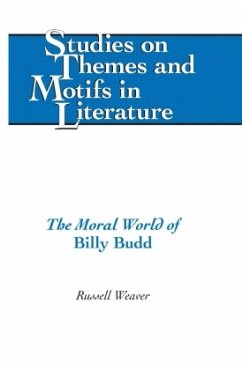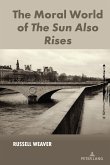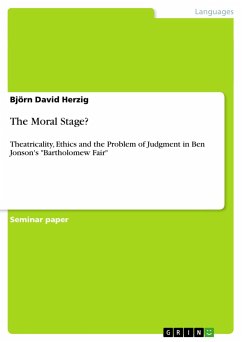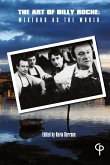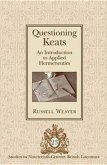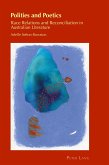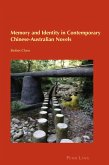The Moral World of Billy Budd sees the novel not as inviting us to choose between the testament of acceptance and the testament of resistance, those views that, respectively, support and critique Captain Vere but rather as challenging us to experience the difficulty of making decisions in the world. The first part is devoted to an intensive examination of the evolution of the two testaments, including analyses of the three book-length studies of the novel, climaxing with Wenke's argument that the Genetic Text shows the novel's active pursuit of ambiguity. The second part analyzes the three major characters, showing how the text almost programmatically complicates each judgment of them. This dynamic is especially true of its judgments of Captain Vere, the character at the center of the critical debate. The critical focus here is on the numerous dichotomies the text uses to present Vere's character, showing how an analysis of these terms leads to a more complicated view of him thanpreviously seen. The Moral World of Billy Budd specifically argues that these oppositions are not intended to be resolved but dissolved, to be seen, that is, as needing to be overcome and approached rather as a means of engaging in a reflection on the nature of moral judgment itself. At the same time, despite the difficulties of deciding, it is clear from the text's perspective that, like Captain Vere, the reader too must decide between the possible alternatives even though any decision reached will be overshadowed by the larger dilemma of operating in a theater beyond our grasp.
«Russell Weaver's 'The Moral World of Billy Budd' is an admirably thorough account of the interpretive history of what may be Melville's most ambiguous tale. Professor Weaver carefully unravels the story's literary, moral, and ethical web, while proposing a new reading that emphasizes the text's determined resistance to simple or simplifying conclusions. Rarely has 'Billy Budd' received such persistent and quietly illuminating attention.» (Clark Davis, Professor of English, University of Denver; Author of After the Whale: Melville in the Wake of Moby-Dick)
«Russell Weaver's 'The Moral World of Billy Budd' mounts an impressive inquiry into the moral and aesthetic complications that animate Herman Melville's troubled, probing attempts over five years to write and revise his unfinished dramatization of Billy Budd's near innocence, John Claggart''s extreme depravity, and Captain Vere's inconsistent responses to Billy's impulsive wartime murder of Claggart. In persuasively arguing that the text's dominant purpose is to resist moral closure, Weaver deftly enacts the sort of critical engagement that 'Billy Budd' seems designed to elicit - a multilayered, dialectical plunge into the narrative's sea of morally oblique cross-purposes. Weaver's rich and highly readable study analyzes key texts within the tradition of 'Billy Budd' criticism. Along with making careful use of evidence in the 1962 Hayford-Sealts Genetic Text of 'Billy Budd', Weaver's engagement with the critical and textual history provides points of departure and reference for his 'tour de force' of close reading. At the center of this study resides his expansive and illuminating analysis of Vere's character. Weaver argues that the text's representation of multiple dichotomies frustrates rather than resolves questions regarding the collision between pragmatic and ideal imperatives. These competing possibilities fashion the artistic landscape wherein Melville stages his tragedy. Russell Weaver's 'The Moral World of Billy Budd' offers a provocative study that successfully engages the critical and scholarly demands posed by the problem novel that Melville, even as he approached death during the summer of 1891, continually sought to complicate.» (John Wenke, Professor of English, Salisbury University; Author of Melville's Muse: Literary Creation and the Forms of Philosophical Fiction)
«Russell Weaver's 'The Moral World of Billy Budd' mounts an impressive inquiry into the moral and aesthetic complications that animate Herman Melville's troubled, probing attempts over five years to write and revise his unfinished dramatization of Billy Budd's near innocence, John Claggart''s extreme depravity, and Captain Vere's inconsistent responses to Billy's impulsive wartime murder of Claggart. In persuasively arguing that the text's dominant purpose is to resist moral closure, Weaver deftly enacts the sort of critical engagement that 'Billy Budd' seems designed to elicit - a multilayered, dialectical plunge into the narrative's sea of morally oblique cross-purposes. Weaver's rich and highly readable study analyzes key texts within the tradition of 'Billy Budd' criticism. Along with making careful use of evidence in the 1962 Hayford-Sealts Genetic Text of 'Billy Budd', Weaver's engagement with the critical and textual history provides points of departure and reference for his 'tour de force' of close reading. At the center of this study resides his expansive and illuminating analysis of Vere's character. Weaver argues that the text's representation of multiple dichotomies frustrates rather than resolves questions regarding the collision between pragmatic and ideal imperatives. These competing possibilities fashion the artistic landscape wherein Melville stages his tragedy. Russell Weaver's 'The Moral World of Billy Budd' offers a provocative study that successfully engages the critical and scholarly demands posed by the problem novel that Melville, even as he approached death during the summer of 1891, continually sought to complicate.» (John Wenke, Professor of English, Salisbury University; Author of Melville's Muse: Literary Creation and the Forms of Philosophical Fiction)

